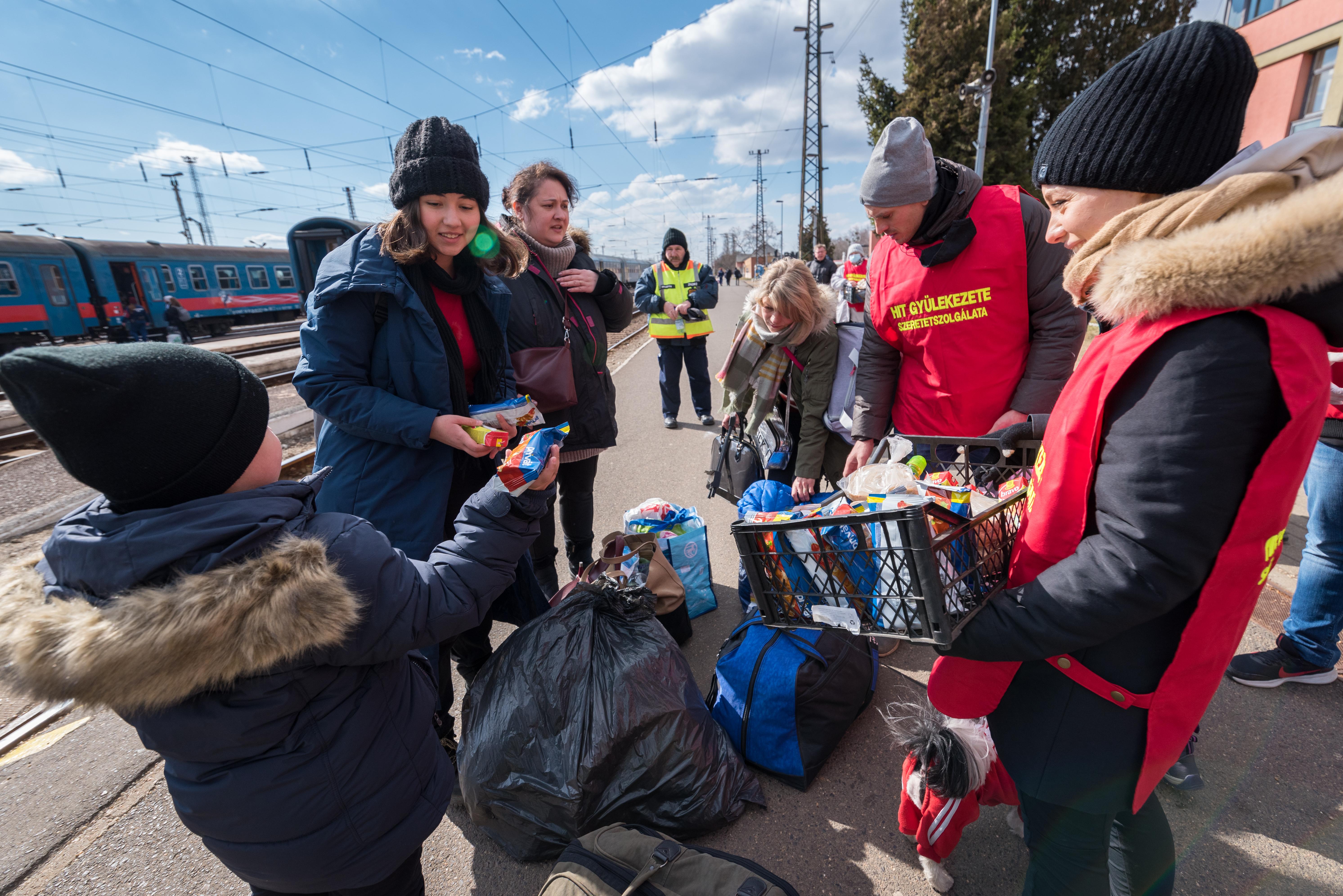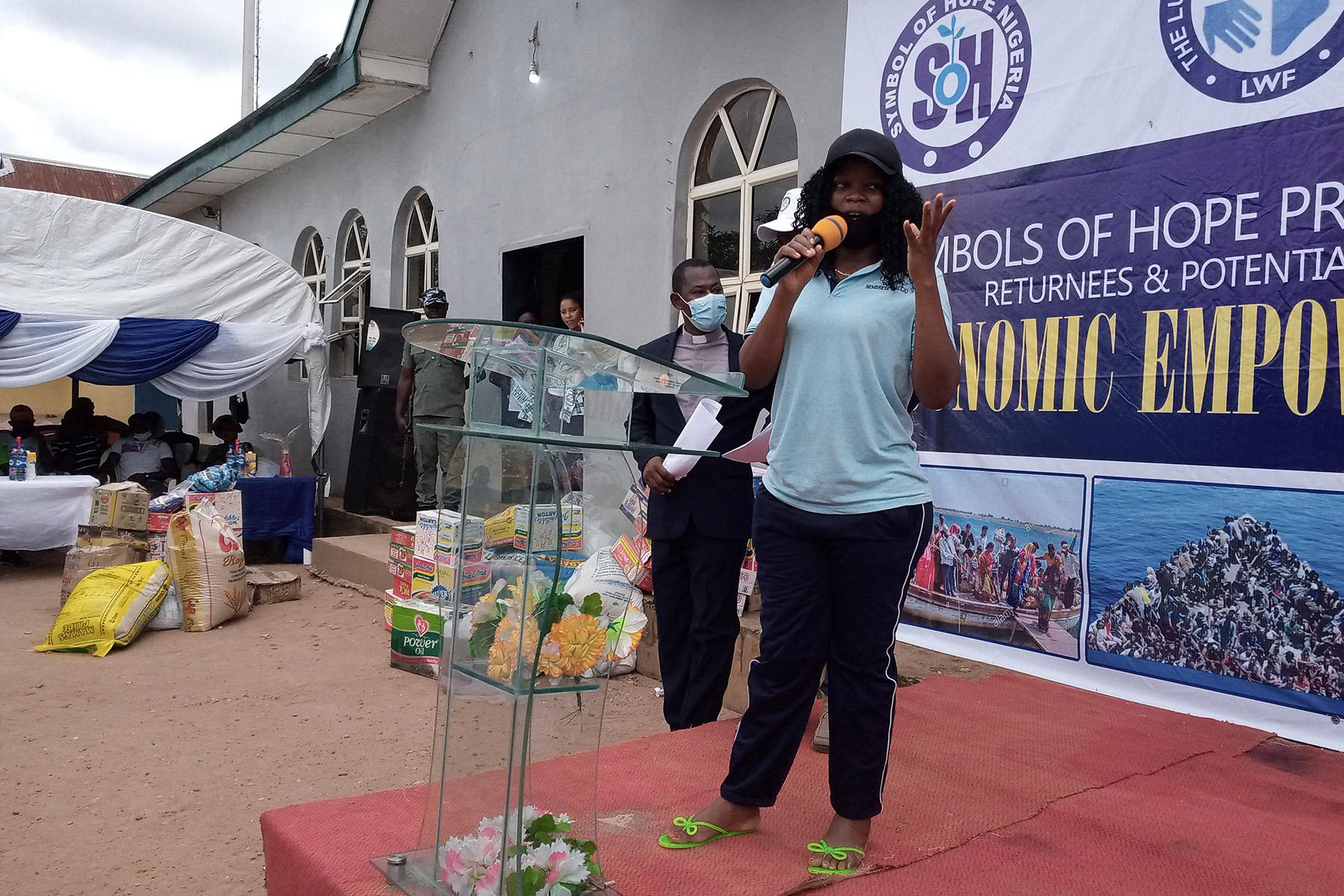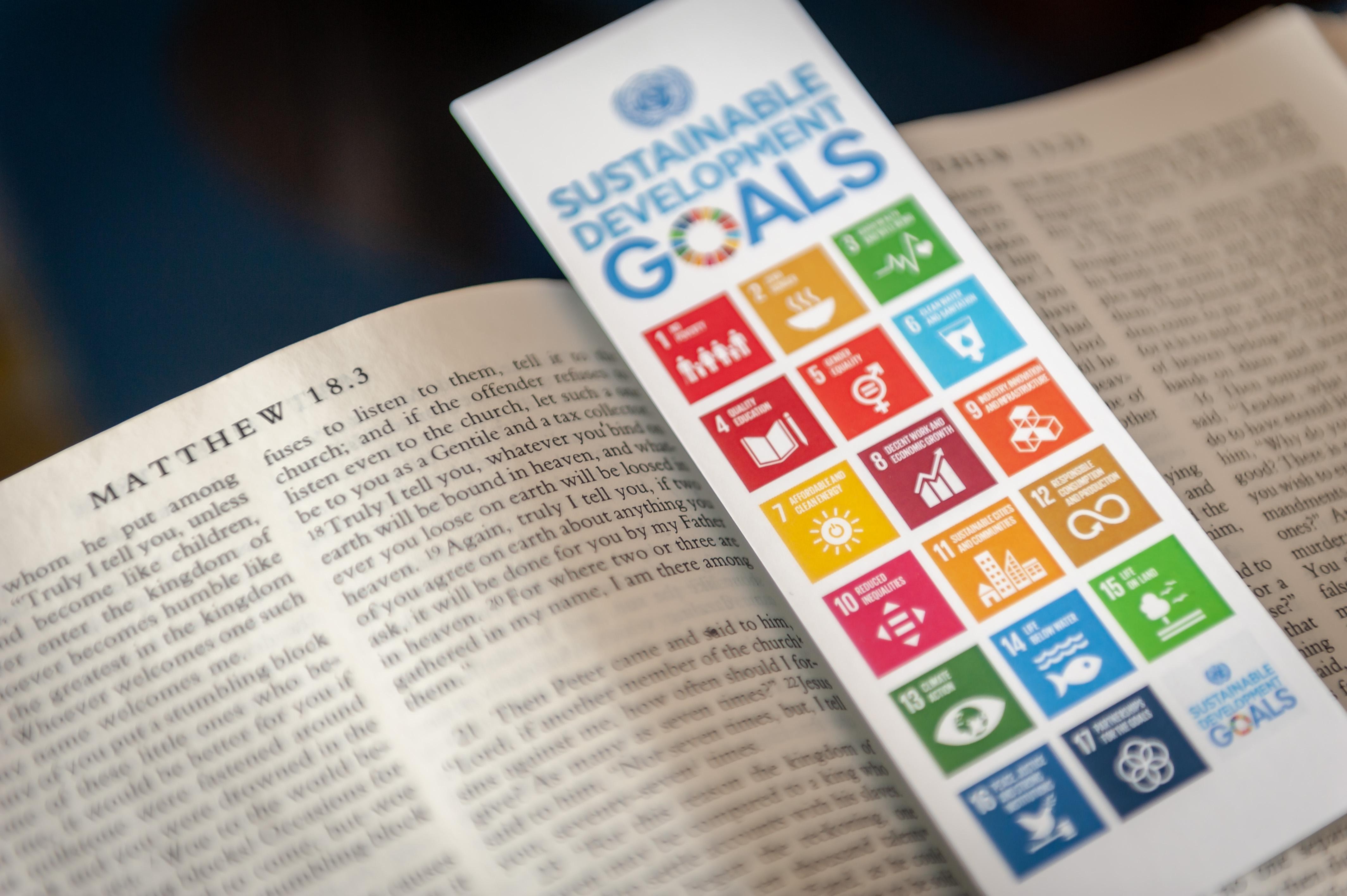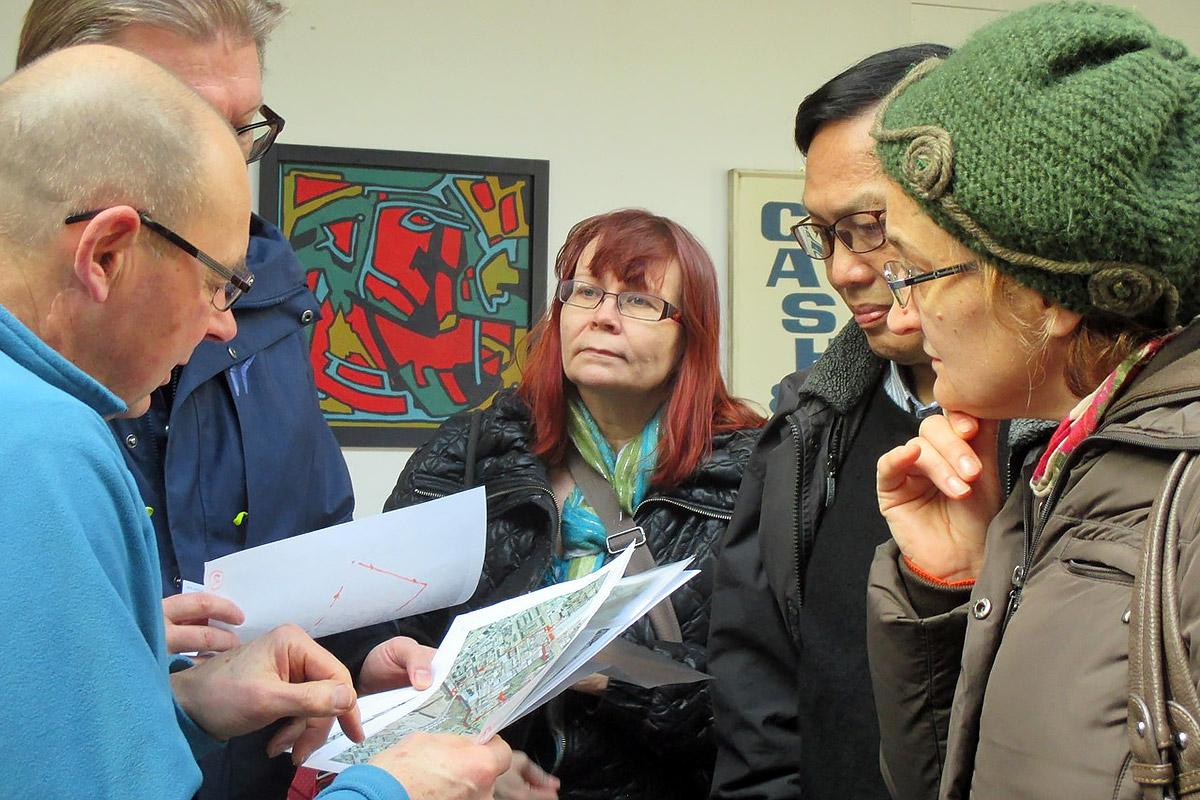Diakonia and Development
Responding to human suffering and injustice
Diakonia refers to the call to respond to human suffering and injustice. It is a central pillar of the holistic mission of churches in the world. The LWF Communion Office supports the member churches in different areas of their diaconal engagement for the wider community. Besides supporting churches’ own local diaconal initiatives through project support (see member church projects), the Communion Office coordinates global initiatives focusing on different themes

Ukrainian refugee families receive support from aid workers as they arrive at the train station in Záhony, Hungary. Photo: LWF/Albin Hillert
Effective first responders to emergencies
‘Churches and Emergencies’ is a global LWF initiative that aims to empower churches to be prepared for and effectively respond to emergencies in their contexts. The initiative is coordinated jointly by the LWF Departments for Theology, Mission and Justice and World Service. It is being implemented by churches in Myanmar, Nepal and Venezuela, with support provided by the respective World Service programs.

Ms Canaan Osagie speaking at the Symbols of Hope mid-September event in Benin City, southern Nigeria. Photo: SOH Nigeria
Challenging irregular migration and human trafficking
In the context of the Symbols of Hope initiative, the LWF Communion Office supports churches in Ethiopia, Nigeria and Zimbabwe to strengthen their capacities and build networks to respond effectively to challenges surrounding irregular migration and human trafficking. The churches have provided tangible symbols of hope by raising awareness and providing psychosocial and livelihoods support to returnees including victims of human trafficking.

Photo: LWF/S. Gallay
Engaging with the UN 2030 Agenda for Sustainable Development
‘Waking the Giant’ is a global ecumenical initiative of the LWF. It aims to build the capacity of churches to contribute effectively to the 2030 United Nations Agenda for Sustainable Development. The initiative provides churches and church-related actors with tools and training to relate their on-going work to the Sustainable Development Goals (SDGs). It makes visible the local contributions of churches to the SDGs, and connects churches and other partners through a global network to engage in mutual learning and joint planning for direct action and advocacy.

Soildarity Group meeting in Manchester, United Kingdom, 2015. Photo: Solidarity Group
Embracing diaconal life in diversity
Conviviality, “the art and practice of living together” has become a core concept and guiding vision for local diakonia in the European regions of the LWF since 2010. Based on vocation, justice and dignity, conviviality invites churches to jointly reflect on the meaning of a diaconal church and diaconal life in diversity. Three core thematic components—conviviality in practice, convivial economy and convivial theology—have been identified to further the work with the conviviality concept. Activities that affirm diversity, being open and contributing to public discourse and policy are part of the ongoing work among churches in the regions.

